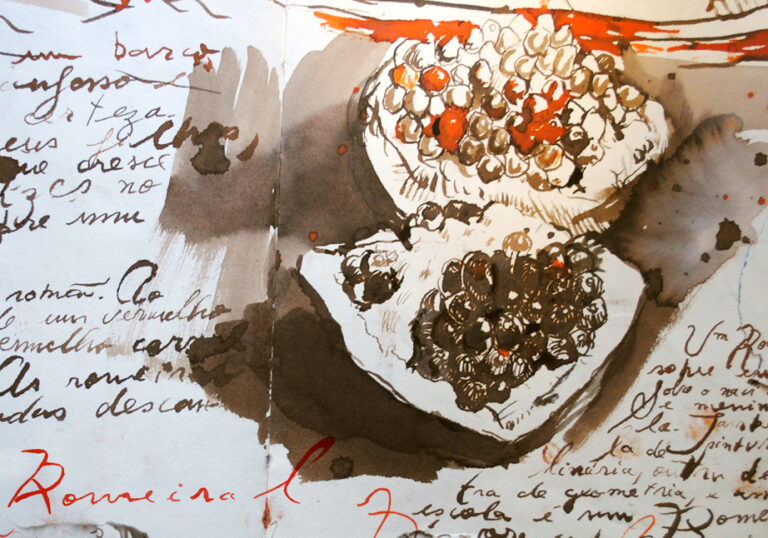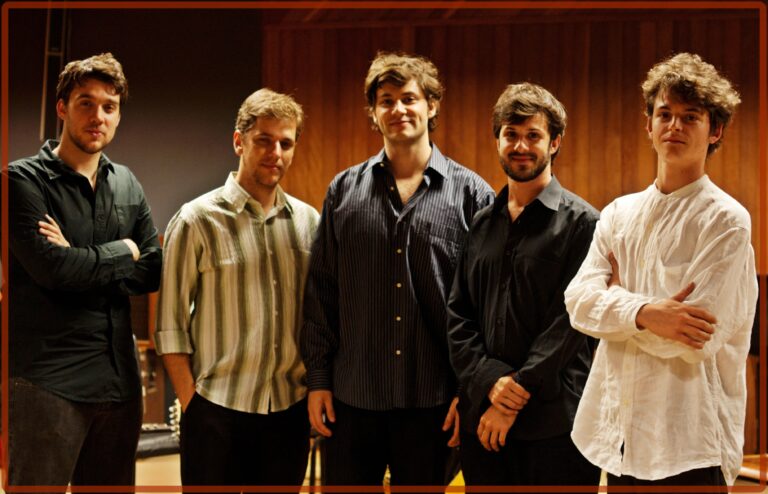Romeiral_ ensemble of authorial chamber music. Created in 2008, the group recorded its first album in 2012 only with compositions created by the performers. The album received many positive critics from important Brazilian musicians, including Andre Mehmari, who wrote a presentation text about the album:
“(…) Contrary to the feeling of dilution and reduction that is often experienced when listening to such “World Music”, the Romeiral album promotes a generous musical embrace of different traditions and cultures, through mini-studies-portraits-compositions, full of artistic honesty and personality. Here, fortunately, we steer clear of the reductionism that transforms rich and complex tradition into an accent. These delightful miniatures (sometimes more descriptive, sometimes more abstract) executed by the group with rigor and balance, go far beyond a mere superficial flirtation between distant relatives who don’t talk to each other: they are like little Rosean tales made of sounds and dreams, through which sincere artistic bridges are born-sprouted that emanate from the free and restless spirits of the courageous members of this continuous Romeiral.” _Andre Mehmari
Romeiral traz em sua pesquisa musical uma mescla fecunda de culturas , de sotaques distintos, e aproxima , dessa maneira, regionalismos distantes, atenuando fronteiras geográficas, étnicas e politicas através da cultura. A identidade do grupo revisita constantemente referências e influências diversas, expressa em um repertório de composições originais e propositivas que realizam essa junção com coerência e inventividade. Através de arranjos primorosos, o octeto alude tanto uma pequena orquestra, com instrumentos típicos como o clarinete e a flauta tranversal, quanto a formações musicais idiomáticas, que fazem referência a outros universos musicais, como o Charango e Quena, tipicamente andinos, à Tin Whisltle irlandesa, passando também pela nossa viola caipira, tocados com primor e misturados com criatividade.
O nome Romeiral faz alusão a um pomar de romãs, tradicional simbolo mediterrâneo de fecundidade e fartura, associado à pesquisa que o grupo cultiva em seu jardim, na expectativa de semear no público um gérmen da fraternidade e universalidade cultural que desenvolvemos em nossa pesquisa.




